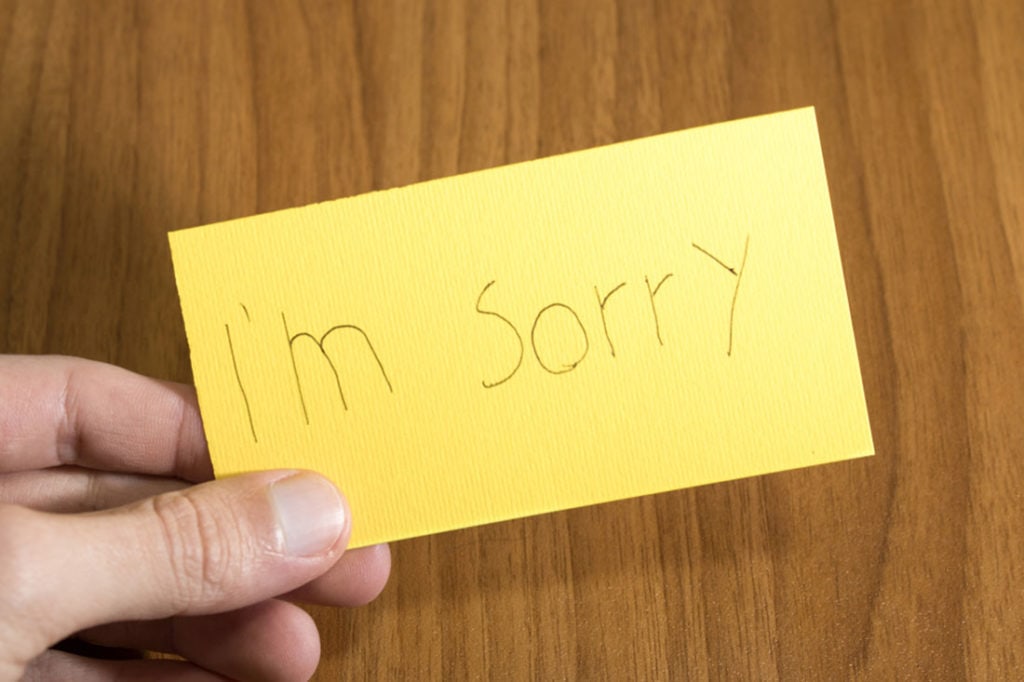The Sincere Apology
A genuine apology is a remarkable thing. You know an apology is solid when it:
1. Explains why the act was wrong
The recipient will probably already know, but it’s nice to know the apologizer knows, too.
2. Says the words “I’m sorry.”
Surprisingly, it’s easy to leave out the two most important words.
3. Takes ownership.
The last thing they want to hear is an excuse.
4. Doesn’t burden the recipient.
A good apology requires nothing in return. It is a debt paid.
Related: The Apology Tour
The Disingenuous Apology
A bad apology only makes things worse. You know you’re giving or receiving a bad apology when it:
1. Sounds like an exercise in guilt-reduction.
Maybe you’ve grown as a person since you committed the act you’re apologizing for, but that has nothing to do with the apology.
2. Justifies the act.
If you could truly justify what you did, then you’d have nothing to apologize for.
3. Tries to be funny.
Maybe joke around before you get into the apology, or when wrapping up the conversation if it went well, but not during. The shift in tone is a sign of sincerity.
4. Assumes forgiveness is inevitable.
A real apology comes with the understanding that they have no obligation to forgive you.
This article originally appeared in the Fall 2018 issue of SUCCESS magazine.


